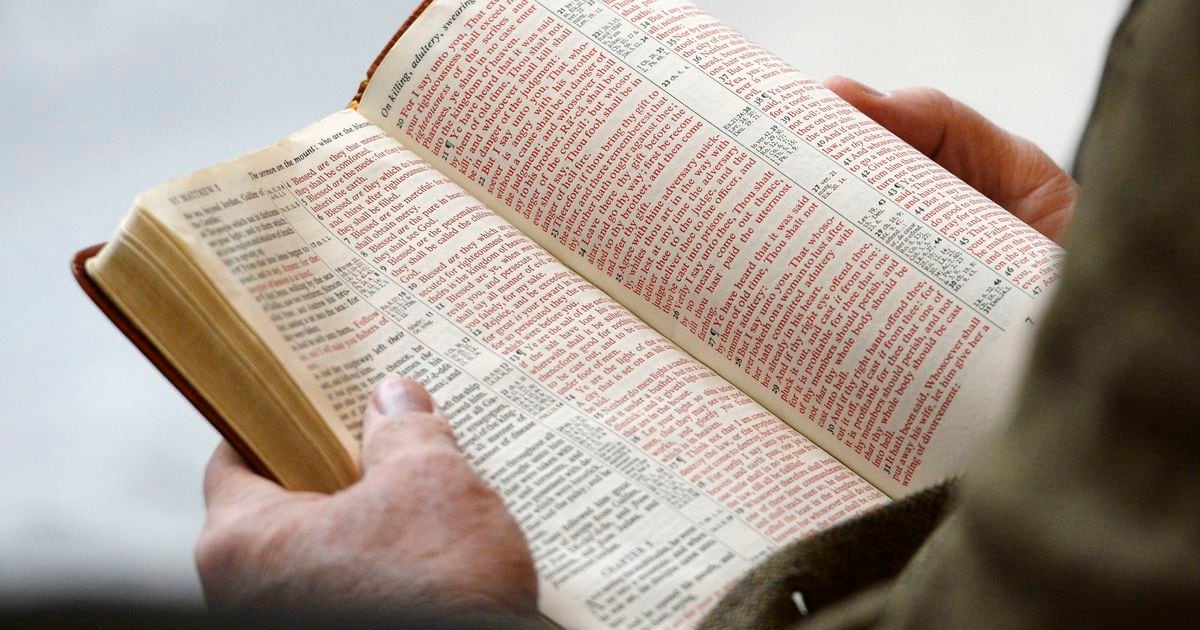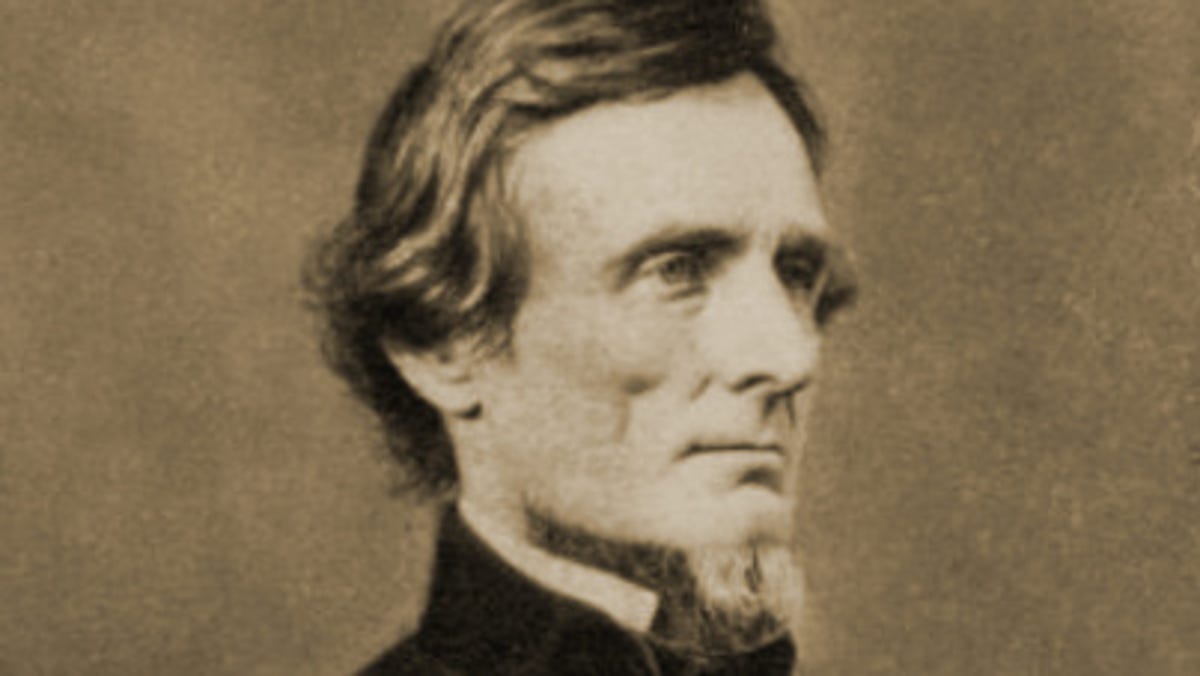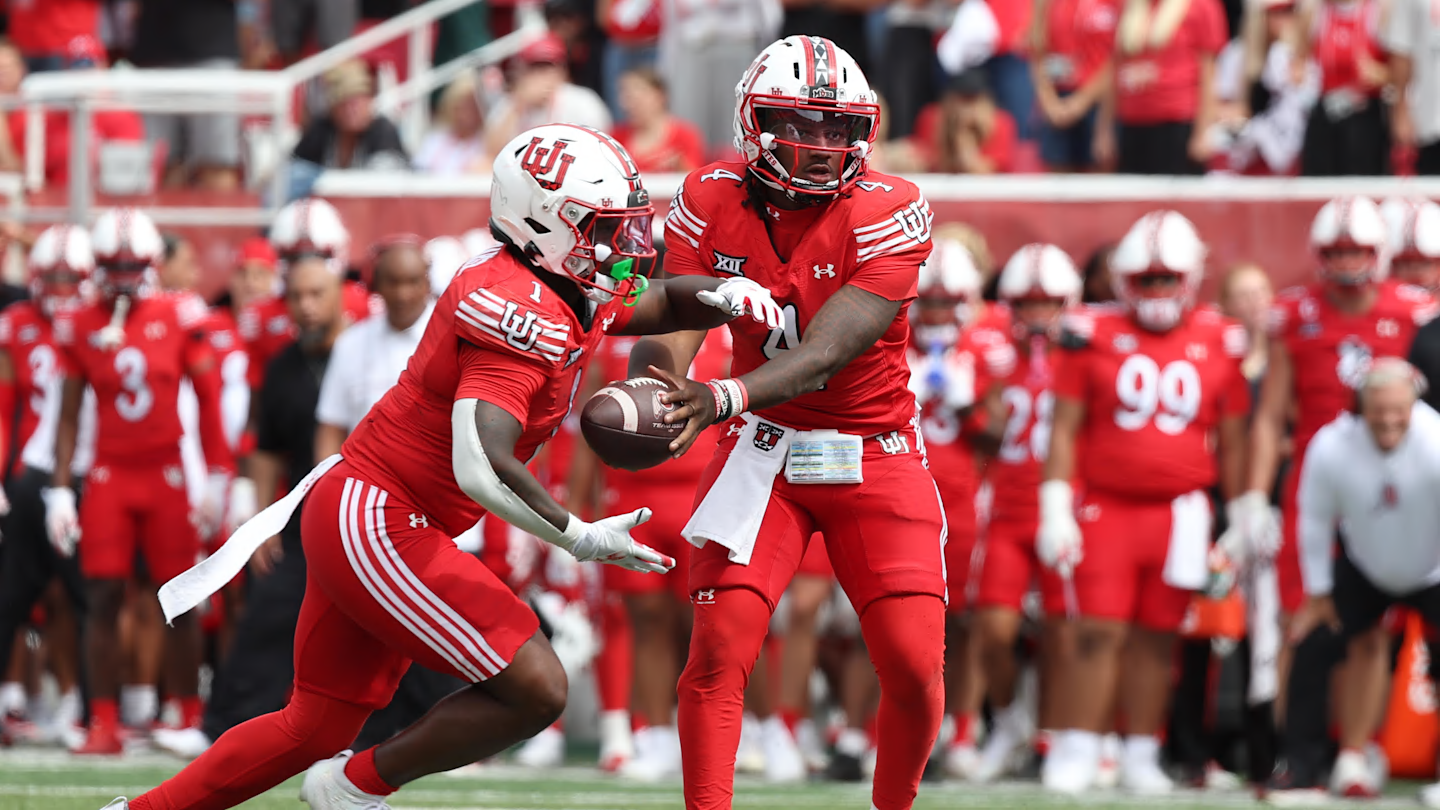In the beginning, a parent filed a challenge to have the Bible removed from Davis School District libraries, citing passages describing sex and violence.
The district said let there be a review of the book. And it was so.
Now, the committee appointed by the district to review the complaint and decide if the Bible is appropriate for students to access has made its determination: High schools in Davis will keep the religious text on the shelf.
But it will be removed from elementary and middle schools for containing “vulgarity or violence.”
That decision on the book challenge — which gained national attention when it was first reported on in March — will take effect immediately, said Davis School District spokesperson Christopher Williams in an email to The Salt Lake Tribune this week.
He believes there are seven or eight elementaries and middle schools in the district that have copies of the Bible that will now be removed as the school year wraps up.
The scripture was first challenged in December by a parent who wrote in their complaint that they were frustrated by the books being removed from school libraries in recent months — with conservative groups across the country and in Utah taking aim at literature they call “inappropriate,” and which has particularly focused on books written about the LGBTQ community.
So the parent submitted their request for a review of the Bible, saying it was time to remove “one of the most sex-ridden books around.”
“Incest, onanism, bestiality, prostitution, genital mutilation, fellatio, dildos, rape, and even infanticide,” the parent wrote in their request, listing topics they found concerning in the religious text. “You’ll no doubt find that the Bible, under Utah Code Ann. § 76-10-1227, has ‘no serious values for minors’ because it’s pornographic by our new definition.”
The code cited is the Utah law passed in 2022 to ban any books containing “pornographic or indecent” content from Utah schools, both in libraries and in the classroom.
Based on the new code, something is indecent if it includes explicit sexual arousal, stimulation, masturbation, intercourse, sodomy or fondling. According to state attorneys, material doesn’t have to be “taken as a whole” in those situations or left on the shelf during a review. If there is a scene involving any of those acts, it should be immediately removed.
Books that have been removed from Utah schools under that guidance include “The Bluest Eye” by Nobel Prize winner Toni Morrison and “Gender Queer,” a graphic novel about the author’s journey of self-identity.
In their complaint about the Bible, the parent attached an eight-page listing of passages from the Bible that they found to be offensive and worth reviewing.
Williams said that the district committee that reviewed the Bible determined it “does not contain sensitive material as defined in Utah Code 76-10-1227, 76-10-1201 or 76-10-1203.” But the group decided to limit the availability of the book to the higher grade levels.
He has previously noted that the book challenge would be taken seriously, like any other complaint.
Already, though, the committee’s decision has been appealed by another parent, Williams said, who wants the Bible to remain on the shelves for students of all ages.
To handle that appeal, the district will now form a committee consisting of three members of Davis School District’s Board of Education. They will review the original complaint and the appeal and make a recommendation to the full board to vote on.
The board will make the final decision in an upcoming public meeting. A date for that has not yet been set.
If the board decides the Bible is appropriate for all students, it will be returned to the shelves, Williams said.
Currently, Davis School District has other religious texts — including the Book of Mormon, Torah and Quran — available to check out without age restrictions. Those have not been challenged.





























